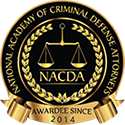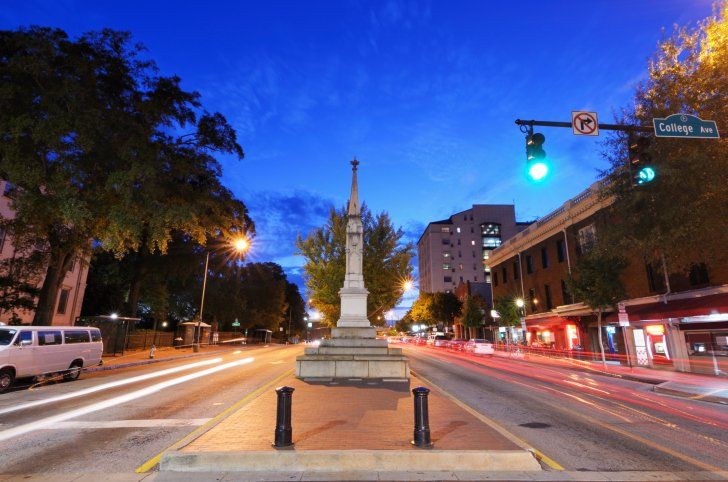
Background: Today, there are currently more than 18,000 local, state, and federal law enforcement agencies in the United States. These agencies employ over 420,000 law enforcement officers tasked with protecting public safety in our communities. Each year, law enforcement conducts over 10 million arrests, resulting in more than 600,000 incarcerations in state or federal prisons. These activities cost taxpayers over $126 billion each year for federal, state, and local law enforcement. It is beyond essential that we, as a people, ensure that these investments in public safety are focused on maintaining a safe and orderly society where individual liberty and property rights are secure. There is growing understanding and agreement that we need to reform the way our police and citizens interact with each other in the United States. This awakening comes, in no small part, as a result of very public and very tragic police citizen encounters that have resulted in video recordings that are often shocking and scary. We have watched over the last several years as cellphone video and body cam footage have revealed the often uncomfortable reality of what happens in police-citizen encounters, especially those involving use of force. Police work is not often pretty and it is not often as entertaining as watching an episode of COPS or LIVE PD. Law enforcement is difficult and inefficient at the best of times in a free society. It is even harder to do well when it is directed at problems it is ill-designed to address. The inherent difficulties are increased when law enforcement operates without the full support of the public. For many reasons, citizens across all walks of life, and African Americans in particular, are feeling a strong need to improve how law enforcement functions in our society. More and more people are seeing where we are and realizing we need to improve. Citizens are asking questions and seeking reform. The questions now become, which reforms should be attempted first and which reforms should be attempted at all? As we watch, again, hurting citizens stream into the streets of our urban centers to protest and peaceably assemble to petition government for redress of these grievances. Regrettably, we are also forced to watch other behavior. While Americans march to seek reform some choose not to express themselves not with placards and speeches but rather engage in rampant criminal debauchery with Molotov cocktails and bricks. Sadly, none of this is new. If we are old enough, none of us can ever forget the video of the Rodney King beating. We recall the trials and the awful riots that followed as King himself asked "can't we all just get along?". In 2015 we watched as Baltimore exploded and a few days into the crisis we heard words no one can quibble with or dispute from President Obama. "This has been a slow-rolling crisis," he said. "This is not new... "I think there are police departments that have to do some soul-searching. I think there are some communities that have to do some soul-searching....But I think we as a country have to do some soul-searching."" "When individuals get crowbars and start prying open doors to loot, they're not protesting. They're not making a statement. They're stealing. When they burn down a building, they're committing arson. And they're destroying and undermining businesses and opportunities in their own communities. That robs jobs and opportunity from people in that area." -President Obama, April 2015 speaking on the Baltimore Riots Our Path Forward: My practice of law as a prosecutor and a criminal defense attorney has spanned the last 25 years and over the course of that time I have represented people, black, white and otherwise in Athens and all over the State of Georgia. As I have helped the citizens of Georgia, I have witnessed firsthand the actions of police officers and observed law enforcement cultures from Dalton in the Northwestern corner of our state down to Savannah in the South Eastern corner. From Columbus, to Atlanta, to Milledgeville, to Statesboro and so on. Like the song made famous by the great Johnny Cash, "I been everywhere". In all I have appeared in court and reviewed police reports and videos in thousands of cases. I do not pretend to have all the answers but I have what I hope is a valuable perspective on the criminal justice system as an insider. My perspective of over 25 years as a prosecutor and defense attorney leads me to conclude that Policing in America needs reform and we have to break ourselves of some bad habits to see it done. We cannot #defundthepolice that is not a workable response to the problem. If we really want to fix the problem we have to change the way we police and what police are asked to do. We cannot send people with badges and guns out into the world to solve every societal ill with the force of law. We need to alter our expectations of what police can do and we need to face some hard realities and make some hard choices in what we should be asking them to do. There is simply way too much authoritarian policing today. Not too many years ago in this country it was much more difficult to have an encounter with the police than it is today in most areas. There are simply too many police-citizen non consensual encounters. Nobody sees problems with anyone saying hello and having a visit with the local officer...that is not the issue. The issues occur when citizens are stopped and detained. The more forced police-citizen contacts the more chances for negative outcomes. Every time there is a traffic stop or a non consensual interaction where the citizen is not abundantly and clearly free to leave the encounter there is potential for conflict. Some situations are worth the risk of conflict and also worth actual conflict including the use of deadly force but many are simply not. Here are 10 steps we can take to make the situation much better. 1) Stop the systematic enforcement of ticky-tack violations, tag lights not illuminated, window tint violations, bald tires, seat belts, etc. I have seen about everything in the book used to justify police stops. End this method of policing. I regularly practice in jurisdictions where this is the go-to method of policing especially on interstates and highways and I also practice in places where it is not in use. Invariably, the citizens in the non ticky-tack enforcement jurisdictions from the most humble to the wealthy have a more favorable opinion of law enforcement. This is true regardless of religious, racial and financial differences. Those jurisdictions with aggressive enforcement of minor or regulatory type violations have more problems with both perception and trust. People know when they are being hassled and they know when their neighbors are being given the business. Every single traffic stop holds the potential for things to go wrong. Every stop for jaywalking or an open container violation is also a chance for things to go bad. We need to rethink what we want from our police and adjust everyone's expectations and actions accordingly. If police make a stop it needs to be because a stop was required...not because it was permissible under some ticky-tack regulation or rule. Situations that pose no risk or only slight risk of harm to the community should cease to be the basis for law enforcement stops. About anything can be justified by claims of safety and we have justified and encouraged way too much in the holy name of safety. 2) End all non-emergency roadblocks and safety checkpoints as they do more harm than good. Our roadways are very safe on the whole and roadblocks are simply not consistent with American ideals. Restriction of the free movement of citizens is not something the State should lightly engage in. Again every stop is potentially the one that leads to a use of force situation and we simply do not need them. Our yearning for safety has got be tempered with a commitment to good government and we are failing in the area of law enforcement. How about we try something less ominous feeling? After all, "your papers are not in order" should never be a thing in the USA. 3) Decriminalize drug possession - start with marijuana and see how it goes. We have much to gain and really very little to lose at this point as prohibition has not prevented drug use. 4) Reform or remove unions for police and prosecutors that make getting rid of "bad cops" difficult (a real problem in some large urbanized areas). No matter how much good has been accomplished by Unions in this country, especially in the past, unionization for public sector employees is fraught with problems. Since about 2006, not less than 1,881 police officers have been fired from 37 of the largest police departments in the USA for misconduct of various types. But they did not all stay fired, in nearly 25% (451) of those cases, police departments were forced to reinstate the fired officers after an appeal process required by union contracts. Often these officers were able to avoid any type of punishment financial or otherwise even though internal affairs "made a case" on them. Those that were ousted where often allowed to settle the cases against them with early retirement or were able to hire on at another agency regardless of their history, due to union efforts. In many large U.S. cities, police unions have enormous political clout, just like private sector unions. These police unions contribute to the very politicians that they negotiate their contracts with. Even as we watch mayors and governors making extravagant promises to constituents in the wake of high profile brutality cases such as the death of George Floyd, little can actually be done without police union reform. Until and unless we are willing to address the contracts of the very police unions that in many cases contribute to big city political campaigns, we are stuck. The reform that people, especially those in urban areas are protesting for will likely not be coming. 5) Stop fighting the failed drug war - just stop already we are not winning. No-knock warrants, etc. are endangering safety every day. Is there any real argument over the efficacy of the drug war? Since the 1970's the USA has been engage in an ongoing battle to combat illicit drug use. Maybe a different approach will do no better but at this point why not try something else.
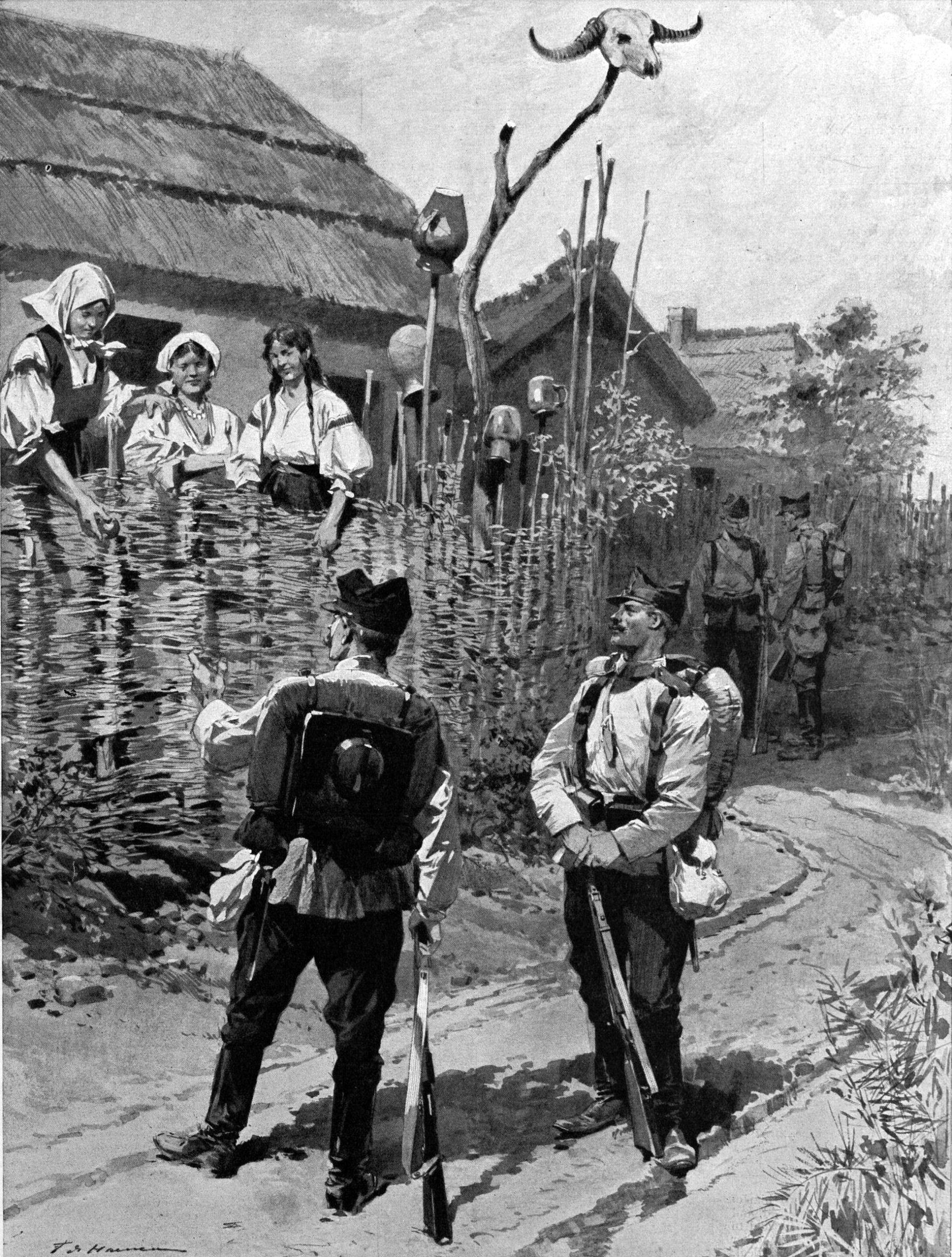
This is a bridge too far. Local government please reconsider your house arrest scheme. When you read this proposed order granting new and expanded "emergency powers" to the government pay particular attention to this patently false statement at the bottom of Article 2 Section 1. "FAILURE TO COMPLY WITH ANY OF THE PROVISIONS OF THIS ORDER CONSTITUTES AN IMMINENT THREAT TO PUBLIC HEALTH." This is simply untrue. There is no way anyone can be an "imminent threat" to public health if they are not infected with the virus causing so much fear and hysteria. The County Government is attempting to impose the full force of drastic quarantine procedures and form a cordon sanitaire around each citizens home. These draconian measures have been restricted and limited throughout our modern history as a nation to cases of Tuberculosis, Ebola and Bubonic Plague. The power to imprison persons is reserved to those cases where the infected persons will not comply with limited, specific and minimally restrictive quarantine procedures. It must be applied to individual infected people and never to every person who may at some point possibly become infected. Civil confinement of citizens who have not committed an offense is a massive deprivation of liberty. It requires a clear justification beyond public fear, concern in the medical community and cries from people saying we need to "do something". The law requires sound scientific evidence of significant individualized risk presented by the infected or sick person, reflecting a delicate balance between public health and civil liberties. The Supreme Court of the United States has established three key requirements for civil commitment. First, the civil commitment must be based on an individualized risk assessment, requiring scientific evidence. Second, the civil commitment must be the least restrictive means available to advance the state interests. Third, the state must provide individuals subject to quarantine procedural due process rights, including a hearing. This ordinance makes no effort to comply with these legal precepts and instead invokes a cordon sanitaire around each persons home....except for the homeless who will not be covered by this mandatory order, not detained, not restricted in any way by the force of this ill advised and over reaching government mass arrest order. https://www.accgov.com/DocumentCenter/View/67248/03-Ordinance-for-the-Second-Declaration-of-a-Local-State-of-Emergency-Related-to-COVID-19
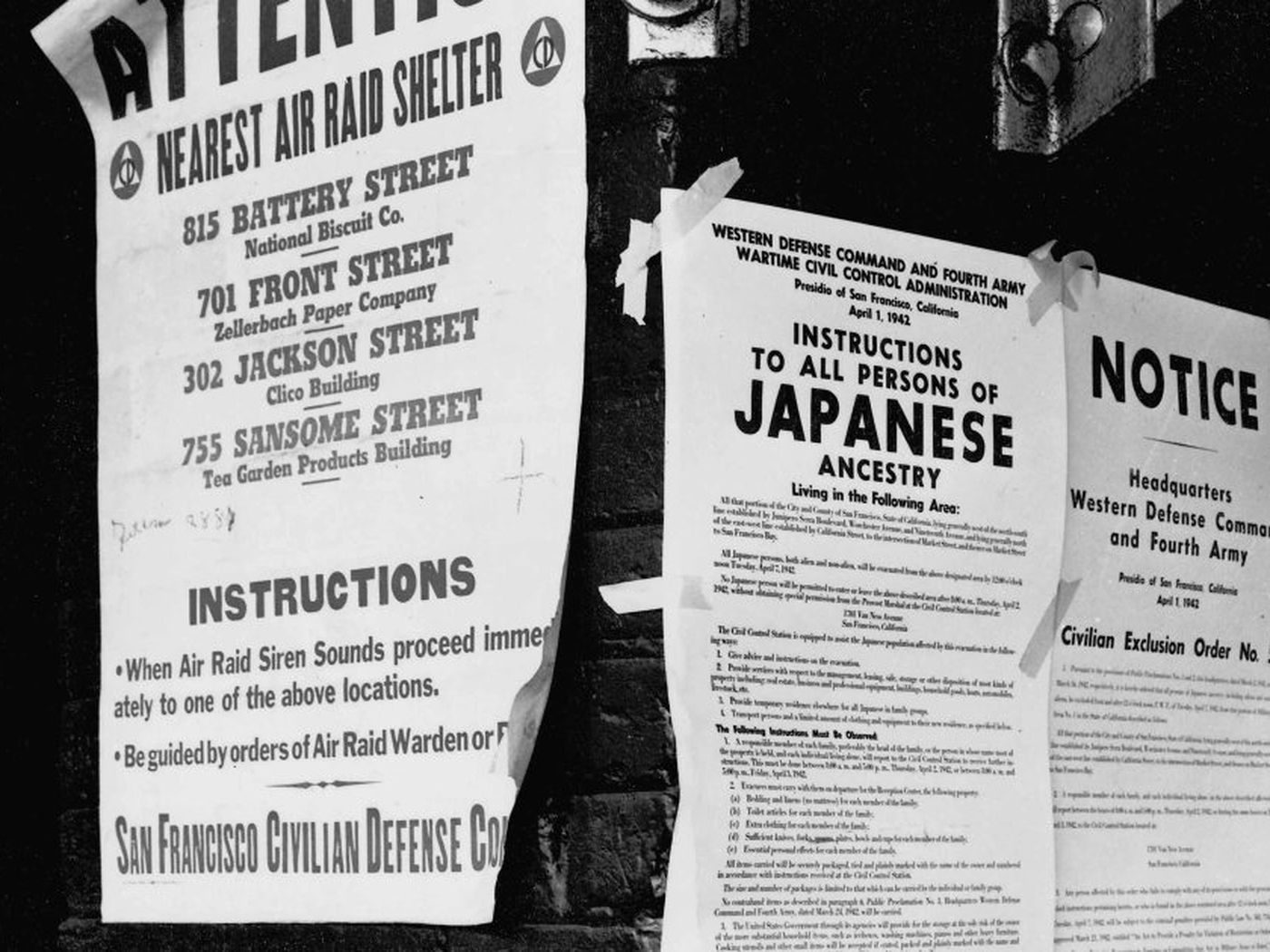
Athens-Clarke County Commissioners wrestled this week with a scheme to force citizens remain in their homes and "shelter in place" (a euphemism for house arrest) in order to forestall the spread of the Covid 19 virus. As of this posting, the commission has thus far avoided their strong temptation to order a mandatory house arrest curfew and have instead requested all citizens to confine themselves within their homes. Requesting compliance with such a goal is one thing and something that is within the lawful authority of the elected government of Athens, Georgia. Banning folks from leaving there homes in the form of a curfew is another matter entirely and is simply a bridge too far. Confinement of persons in their homes is still confinement and it is an unreasonable restrictions on personal liberty that should not be attempted by our local government. Safety is always the excuse to justify abridgment of liberty but Jefferson and Franklin, among others, had it right. Liberty is to be vastly preferred over safety. Always and all the time. Liberty over safety is as American as baseball, apple pie and the 4th of July. LIBERTY -------------------------- SAFETY We have been down this road many times before and the most well known and widely lamented example is the forced interment of U.S. Citizens of Japanese descent in WWII. We all recall the f orcible arrest, detention and interment in camps as a result of a declared emergency. In Executive Order 9066 President Franklin Roosevelt, no doubt motivated by real and genuine concern for the safety of persons and property authorized the widespread abuse of the liberty of United States Citizens. This was another day that will live in infamy and it was two weeks after Pearl Harbor. We knew and should have known it was wrong but we did it anyway and all in the name of safety. Politicians and government officials believed themselves to be fully justified by the emergency circumstances and claimed they were acting in the public interest. “Neither the Army or the War Relocation Authority relished the idea of taking men, women and children from their homes, their shops and their farms, so the military and civilian agencies alike determined to do the job as a democracy should: with real consideration for the people involved." - Milton S. Eisenhower, Director of War Relocation Authority (1943) “It is my sincere belief that the Pacific coast should be declared a military area which will give authority to treat residents, either alien or citizens, as camp followers....permitting their removal, regardless of their citizenship rights, to less dangerous areas." - Senator Harley M. Kilgore of West Virginia, February 1942 The courts provided no recourse and in one of it's most most widely condemned decisions, the U.S. Supreme Court upheld the exclusion orders in Korematsu v. United States. Justice Hugo Black argued for a 6-3 majority that the exclusion orders were a necessary outgrowth of the president’s war powers and justified by the situation at hand. “Compulsory exclusion of large groups of citizens from their homes, except under circumstances of direst emergency and peril, is inconsistent with our basic governmental institutions," he wrote in his opinion for the Court. “But when, under conditions of modern warfare, our shores are threatened by hostile forces, the power to protect must be commensurate with the threatened danger.” It was wrong to remove people from their homes and lock them up and we now we must also recognize it as wrong to lock people in their homes by fiat no matter how well intended or well meaning the excuse or compelling the claimed justification. In 1971 Congress passed the Non-Detention Act , which unequivocally states, “No citizen shall be imprisoned or otherwise detained by the United States except pursuant to an Act of Congress,” to prevent future presidents from attempting to inter American Citizens ever again. The Civil Liberties Act of 1988 paid reparations to Japanese-Americans who lost their property and personal belongings during the war. There is no place in our country for mass interment camps whether they be in the deserts of Utah where citizens of Japanese ancestry can be kept for their own good and for public safety or in our very own homes in Athens, Georgia.
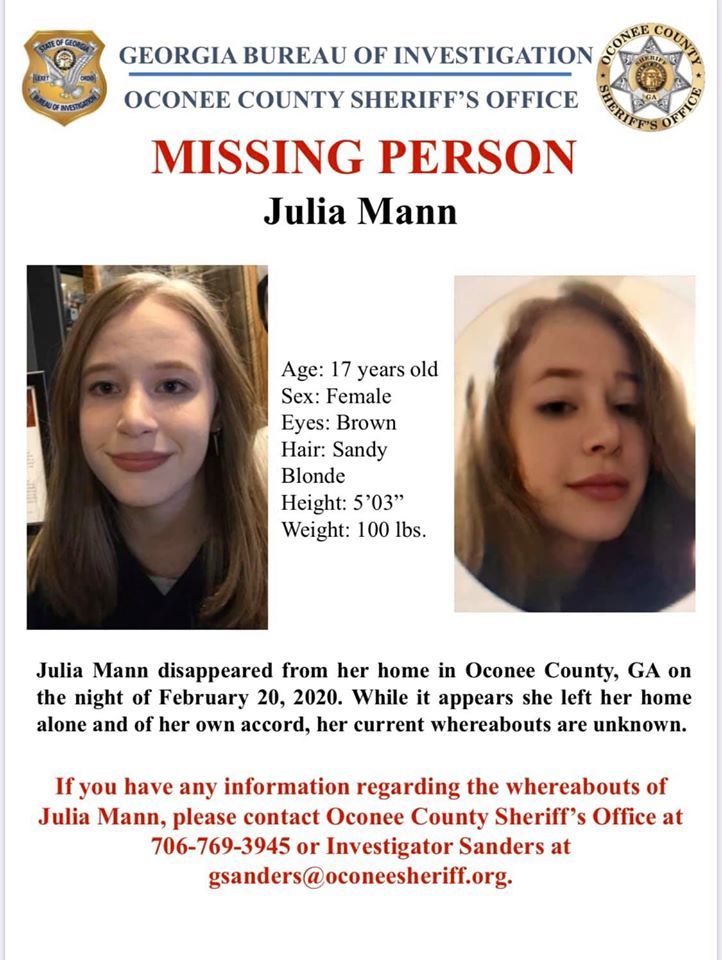
There is a $7,000 reward for information leading to the whereabouts of 17-year-old Julia Mann who disappeared from her home in Oconee County, GA on the night of February 20, 2020. While it appears she left her home alone and of her own accord, her current whereabouts are unknown. If you have any information regarding the whereabouts of Julia Mann, please contact the Oconee County Sheriff’s Office at 706-769-3945. You can also pass along any relevant information to Investigator Golden Sanders by email gsanders@oconeesheriff.org although there is no suspicion of foul play this teen going missing is traumatic to her family, friends and the entire Oconee County Community. Please help Julia get home safe and please pray for her safe return.
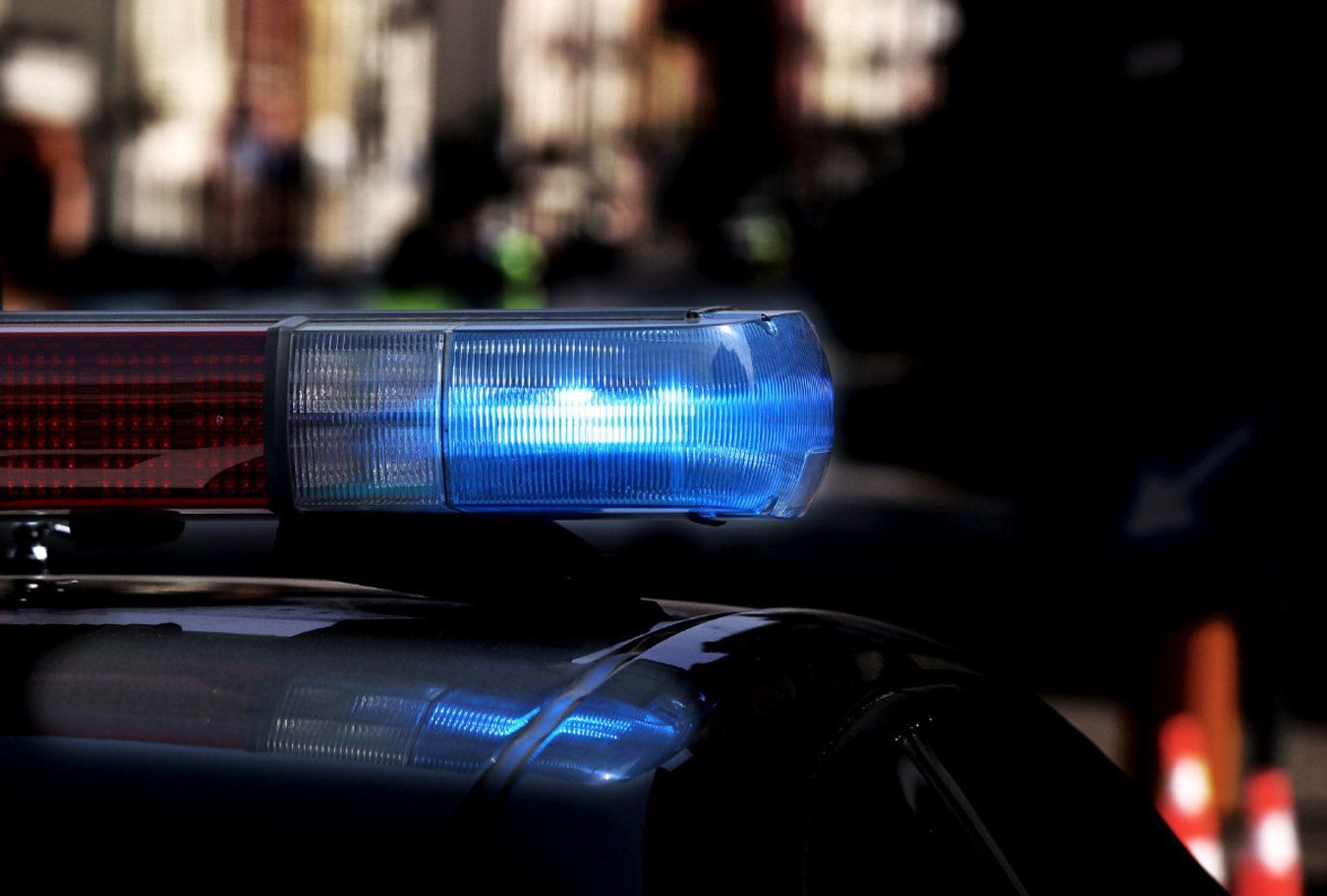
As reported in a story by Classic City News reporter Joe Johnson, The Athens-Clarke County Police Department investigators executed a search warrant that resulted in the seizure of approximately 2,370 fake THC vape cartridges. The Athens-Clarke County Police Department is advising the Athens Community to be on the lookout for illegal or tainted vape cartridges that contain or may contain THC and other chemicals. The warning comes on the heels of reports issued by the Centers for Disease Control and Prevention and other health agencies claiming pronounced health-hazards of vaping. It is even being claimed that vaping brings health risk "worse" than smoking. Joe Johnson reports that ACCPD claims “These homemade vape cartridges are identical to those produced by a California company where THC is legal,”and “When the offender was assembling the homemade cartridges, several other chemicals were added which carry additional health concerns.” THC is the psychoactive chemical found in marijuana that produces the “high” users of marijuana typically experience upon ingesting, inhaling or smoking marijuana. Athens police recently made a large drug seizure that included 275 THC vape cartridges apparently someone had constructed the vape cartridges to resemble commercially available cartridges and attempted to disguise the fact that they contained THC.
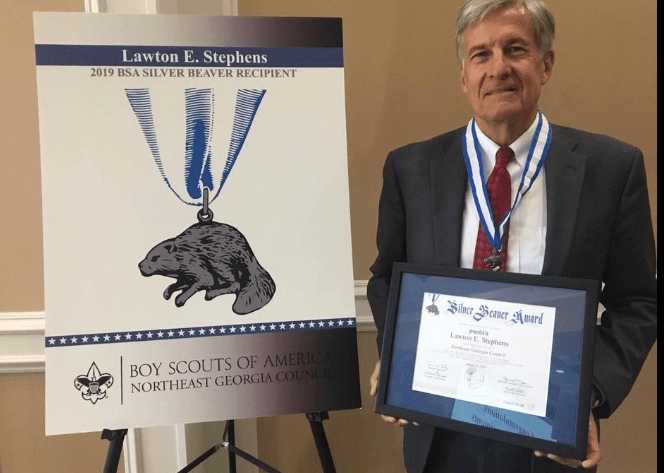
The Honorable Lawton Stephens recently received the Silver Beaver Award from the Northeast Georgia Council of the Boy Scouts of America. This award was presented to recognize his outstanding service to the Boy Scouts, to Scouting and to the community. As reported a recent note in the Athens Banner Herald, https://www.onlineathens.com/news/20190826/judge-stephens-honored-by-boy-scouts The Silver Beaver Award is the highest honor the Boy Scout Council can bestow on an adult volunteer with the scouts. Judge Stephens serves in many capacities in the community including as the President of the Western Circuit Bar Association.

In the dark hours of the early morning a group of determined smash and grab robbers attacked a local business and got away with a number a weapons. Athens Gun Club a local indoor shooting range with firearms pro shop and a federally licensed firearms merchant was the victim of a smash and grab burglary. […]

The Athens-Clarke County Police Department is partnering with UBER to utilize location monitoring technology to help 911 function. The Athens Police are the first law enforcement agency in the state of Georgia to have an Uber integration system with the 911 service in their jurisdiction. As related by WUGA https://www.wuga.org/, Captain Keith Kelley is the […]

As the father of three daughters and as an advocate for the right of self-defense in Georgia and Second Amendment rights I am thrilled to sponsor and support “The Mingle 2019”. Second Amendment rights are essential Women’s Rights. -Mo Wiltshire Our friends at the Complete Combatant, are again hosting an event to support female leaders […]

Designated Dawgs is a nonprofit organization operated by students of the University of Georgia. The organization offers no cost, non-judgmental and safe rides back home from the downtown Athens area on selected, usually high traffic, Thursday and Friday nights during the fall and spring semesters of each college year. Designated Dawgs operates by means of […]
Recent Posts

Background: Today, there are currently more than 18,000 local, state, and federal law enforcement agencies in the United States. These agencies employ over 420,000 law enforcement officers tasked with protecting public safety in our communities. Each year, law enforcement conducts over 10 million arrests, resulting in more than 600,000 incarcerations in state or federal prisons. These activities cost taxpayers over $126 billion each year for federal, state, and local law enforcement. It is beyond essential that we, as a people, ensure that these investments in public safety are focused on maintaining a safe and orderly society where individual liberty and property rights are secure. There is growing understanding and agreement that we need to reform the way our police and citizens interact with each other in the United States. This awakening comes, in no small part, as a result of very public and very tragic police citizen encounters that have resulted in video recordings that are often shocking and scary. We have watched over the last several years as cellphone video and body cam footage have revealed the often uncomfortable reality of what happens in police-citizen encounters, especially those involving use of force. Police work is not often pretty and it is not often as entertaining as watching an episode of COPS or LIVE PD. Law enforcement is difficult and inefficient at the best of times in a free society. It is even harder to do well when it is directed at problems it is ill-designed to address. The inherent difficulties are increased when law enforcement operates without the full support of the public. For many reasons, citizens across all walks of life, and African Americans in particular, are feeling a strong need to improve how law enforcement functions in our society. More and more people are seeing where we are and realizing we need to improve. Citizens are asking questions and seeking reform. The questions now become, which reforms should be attempted first and which reforms should be attempted at all? As we watch, again, hurting citizens stream into the streets of our urban centers to protest and peaceably assemble to petition government for redress of these grievances. Regrettably, we are also forced to watch other behavior. While Americans march to seek reform some choose not to express themselves not with placards and speeches but rather engage in rampant criminal debauchery with Molotov cocktails and bricks. Sadly, none of this is new. If we are old enough, none of us can ever forget the video of the Rodney King beating. We recall the trials and the awful riots that followed as King himself asked "can't we all just get along?". In 2015 we watched as Baltimore exploded and a few days into the crisis we heard words no one can quibble with or dispute from President Obama. "This has been a slow-rolling crisis," he said. "This is not new... "I think there are police departments that have to do some soul-searching. I think there are some communities that have to do some soul-searching....But I think we as a country have to do some soul-searching."" "When individuals get crowbars and start prying open doors to loot, they're not protesting. They're not making a statement. They're stealing. When they burn down a building, they're committing arson. And they're destroying and undermining businesses and opportunities in their own communities. That robs jobs and opportunity from people in that area." -President Obama, April 2015 speaking on the Baltimore Riots Our Path Forward: My practice of law as a prosecutor and a criminal defense attorney has spanned the last 25 years and over the course of that time I have represented people, black, white and otherwise in Athens and all over the State of Georgia. As I have helped the citizens of Georgia, I have witnessed firsthand the actions of police officers and observed law enforcement cultures from Dalton in the Northwestern corner of our state down to Savannah in the South Eastern corner. From Columbus, to Atlanta, to Milledgeville, to Statesboro and so on. Like the song made famous by the great Johnny Cash, "I been everywhere". In all I have appeared in court and reviewed police reports and videos in thousands of cases. I do not pretend to have all the answers but I have what I hope is a valuable perspective on the criminal justice system as an insider. My perspective of over 25 years as a prosecutor and defense attorney leads me to conclude that Policing in America needs reform and we have to break ourselves of some bad habits to see it done. We cannot #defundthepolice that is not a workable response to the problem. If we really want to fix the problem we have to change the way we police and what police are asked to do. We cannot send people with badges and guns out into the world to solve every societal ill with the force of law. We need to alter our expectations of what police can do and we need to face some hard realities and make some hard choices in what we should be asking them to do. There is simply way too much authoritarian policing today. Not too many years ago in this country it was much more difficult to have an encounter with the police than it is today in most areas. There are simply too many police-citizen non consensual encounters. Nobody sees problems with anyone saying hello and having a visit with the local officer...that is not the issue. The issues occur when citizens are stopped and detained. The more forced police-citizen contacts the more chances for negative outcomes. Every time there is a traffic stop or a non consensual interaction where the citizen is not abundantly and clearly free to leave the encounter there is potential for conflict. Some situations are worth the risk of conflict and also worth actual conflict including the use of deadly force but many are simply not. Here are 10 steps we can take to make the situation much better. 1) Stop the systematic enforcement of ticky-tack violations, tag lights not illuminated, window tint violations, bald tires, seat belts, etc. I have seen about everything in the book used to justify police stops. End this method of policing. I regularly practice in jurisdictions where this is the go-to method of policing especially on interstates and highways and I also practice in places where it is not in use. Invariably, the citizens in the non ticky-tack enforcement jurisdictions from the most humble to the wealthy have a more favorable opinion of law enforcement. This is true regardless of religious, racial and financial differences. Those jurisdictions with aggressive enforcement of minor or regulatory type violations have more problems with both perception and trust. People know when they are being hassled and they know when their neighbors are being given the business. Every single traffic stop holds the potential for things to go wrong. Every stop for jaywalking or an open container violation is also a chance for things to go bad. We need to rethink what we want from our police and adjust everyone's expectations and actions accordingly. If police make a stop it needs to be because a stop was required...not because it was permissible under some ticky-tack regulation or rule. Situations that pose no risk or only slight risk of harm to the community should cease to be the basis for law enforcement stops. About anything can be justified by claims of safety and we have justified and encouraged way too much in the holy name of safety. 2) End all non-emergency roadblocks and safety checkpoints as they do more harm than good. Our roadways are very safe on the whole and roadblocks are simply not consistent with American ideals. Restriction of the free movement of citizens is not something the State should lightly engage in. Again every stop is potentially the one that leads to a use of force situation and we simply do not need them. Our yearning for safety has got be tempered with a commitment to good government and we are failing in the area of law enforcement. How about we try something less ominous feeling? After all, "your papers are not in order" should never be a thing in the USA. 3) Decriminalize drug possession - start with marijuana and see how it goes. We have much to gain and really very little to lose at this point as prohibition has not prevented drug use. 4) Reform or remove unions for police and prosecutors that make getting rid of "bad cops" difficult (a real problem in some large urbanized areas). No matter how much good has been accomplished by Unions in this country, especially in the past, unionization for public sector employees is fraught with problems. Since about 2006, not less than 1,881 police officers have been fired from 37 of the largest police departments in the USA for misconduct of various types. But they did not all stay fired, in nearly 25% (451) of those cases, police departments were forced to reinstate the fired officers after an appeal process required by union contracts. Often these officers were able to avoid any type of punishment financial or otherwise even though internal affairs "made a case" on them. Those that were ousted where often allowed to settle the cases against them with early retirement or were able to hire on at another agency regardless of their history, due to union efforts. In many large U.S. cities, police unions have enormous political clout, just like private sector unions. These police unions contribute to the very politicians that they negotiate their contracts with. Even as we watch mayors and governors making extravagant promises to constituents in the wake of high profile brutality cases such as the death of George Floyd, little can actually be done without police union reform. Until and unless we are willing to address the contracts of the very police unions that in many cases contribute to big city political campaigns, we are stuck. The reform that people, especially those in urban areas are protesting for will likely not be coming. 5) Stop fighting the failed drug war - just stop already we are not winning. No-knock warrants, etc. are endangering safety every day. Is there any real argument over the efficacy of the drug war? Since the 1970's the USA has been engage in an ongoing battle to combat illicit drug use. Maybe a different approach will do no better but at this point why not try something else.

This is a bridge too far. Local government please reconsider your house arrest scheme. When you read this proposed order granting new and expanded "emergency powers" to the government pay particular attention to this patently false statement at the bottom of Article 2 Section 1. "FAILURE TO COMPLY WITH ANY OF THE PROVISIONS OF THIS ORDER CONSTITUTES AN IMMINENT THREAT TO PUBLIC HEALTH." This is simply untrue. There is no way anyone can be an "imminent threat" to public health if they are not infected with the virus causing so much fear and hysteria. The County Government is attempting to impose the full force of drastic quarantine procedures and form a cordon sanitaire around each citizens home. These draconian measures have been restricted and limited throughout our modern history as a nation to cases of Tuberculosis, Ebola and Bubonic Plague. The power to imprison persons is reserved to those cases where the infected persons will not comply with limited, specific and minimally restrictive quarantine procedures. It must be applied to individual infected people and never to every person who may at some point possibly become infected. Civil confinement of citizens who have not committed an offense is a massive deprivation of liberty. It requires a clear justification beyond public fear, concern in the medical community and cries from people saying we need to "do something". The law requires sound scientific evidence of significant individualized risk presented by the infected or sick person, reflecting a delicate balance between public health and civil liberties. The Supreme Court of the United States has established three key requirements for civil commitment. First, the civil commitment must be based on an individualized risk assessment, requiring scientific evidence. Second, the civil commitment must be the least restrictive means available to advance the state interests. Third, the state must provide individuals subject to quarantine procedural due process rights, including a hearing. This ordinance makes no effort to comply with these legal precepts and instead invokes a cordon sanitaire around each persons home....except for the homeless who will not be covered by this mandatory order, not detained, not restricted in any way by the force of this ill advised and over reaching government mass arrest order. https://www.accgov.com/DocumentCenter/View/67248/03-Ordinance-for-the-Second-Declaration-of-a-Local-State-of-Emergency-Related-to-COVID-19

Athens-Clarke County Commissioners wrestled this week with a scheme to force citizens remain in their homes and "shelter in place" (a euphemism for house arrest) in order to forestall the spread of the Covid 19 virus. As of this posting, the commission has thus far avoided their strong temptation to order a mandatory house arrest curfew and have instead requested all citizens to confine themselves within their homes. Requesting compliance with such a goal is one thing and something that is within the lawful authority of the elected government of Athens, Georgia. Banning folks from leaving there homes in the form of a curfew is another matter entirely and is simply a bridge too far. Confinement of persons in their homes is still confinement and it is an unreasonable restrictions on personal liberty that should not be attempted by our local government. Safety is always the excuse to justify abridgment of liberty but Jefferson and Franklin, among others, had it right. Liberty is to be vastly preferred over safety. Always and all the time. Liberty over safety is as American as baseball, apple pie and the 4th of July. LIBERTY -------------------------- SAFETY We have been down this road many times before and the most well known and widely lamented example is the forced interment of U.S. Citizens of Japanese descent in WWII. We all recall the f orcible arrest, detention and interment in camps as a result of a declared emergency. In Executive Order 9066 President Franklin Roosevelt, no doubt motivated by real and genuine concern for the safety of persons and property authorized the widespread abuse of the liberty of United States Citizens. This was another day that will live in infamy and it was two weeks after Pearl Harbor. We knew and should have known it was wrong but we did it anyway and all in the name of safety. Politicians and government officials believed themselves to be fully justified by the emergency circumstances and claimed they were acting in the public interest. “Neither the Army or the War Relocation Authority relished the idea of taking men, women and children from their homes, their shops and their farms, so the military and civilian agencies alike determined to do the job as a democracy should: with real consideration for the people involved." - Milton S. Eisenhower, Director of War Relocation Authority (1943) “It is my sincere belief that the Pacific coast should be declared a military area which will give authority to treat residents, either alien or citizens, as camp followers....permitting their removal, regardless of their citizenship rights, to less dangerous areas." - Senator Harley M. Kilgore of West Virginia, February 1942 The courts provided no recourse and in one of it's most most widely condemned decisions, the U.S. Supreme Court upheld the exclusion orders in Korematsu v. United States. Justice Hugo Black argued for a 6-3 majority that the exclusion orders were a necessary outgrowth of the president’s war powers and justified by the situation at hand. “Compulsory exclusion of large groups of citizens from their homes, except under circumstances of direst emergency and peril, is inconsistent with our basic governmental institutions," he wrote in his opinion for the Court. “But when, under conditions of modern warfare, our shores are threatened by hostile forces, the power to protect must be commensurate with the threatened danger.” It was wrong to remove people from their homes and lock them up and we now we must also recognize it as wrong to lock people in their homes by fiat no matter how well intended or well meaning the excuse or compelling the claimed justification. In 1971 Congress passed the Non-Detention Act , which unequivocally states, “No citizen shall be imprisoned or otherwise detained by the United States except pursuant to an Act of Congress,” to prevent future presidents from attempting to inter American Citizens ever again. The Civil Liberties Act of 1988 paid reparations to Japanese-Americans who lost their property and personal belongings during the war. There is no place in our country for mass interment camps whether they be in the deserts of Utah where citizens of Japanese ancestry can be kept for their own good and for public safety or in our very own homes in Athens, Georgia.

There is a $7,000 reward for information leading to the whereabouts of 17-year-old Julia Mann who disappeared from her home in Oconee County, GA on the night of February 20, 2020. While it appears she left her home alone and of her own accord, her current whereabouts are unknown. If you have any information regarding the whereabouts of Julia Mann, please contact the Oconee County Sheriff’s Office at 706-769-3945. You can also pass along any relevant information to Investigator Golden Sanders by email gsanders@oconeesheriff.org although there is no suspicion of foul play this teen going missing is traumatic to her family, friends and the entire Oconee County Community. Please help Julia get home safe and please pray for her safe return.

As reported in a story by Classic City News reporter Joe Johnson, The Athens-Clarke County Police Department investigators executed a search warrant that resulted in the seizure of approximately 2,370 fake THC vape cartridges. The Athens-Clarke County Police Department is advising the Athens Community to be on the lookout for illegal or tainted vape cartridges that contain or may contain THC and other chemicals. The warning comes on the heels of reports issued by the Centers for Disease Control and Prevention and other health agencies claiming pronounced health-hazards of vaping. It is even being claimed that vaping brings health risk "worse" than smoking. Joe Johnson reports that ACCPD claims “These homemade vape cartridges are identical to those produced by a California company where THC is legal,”and “When the offender was assembling the homemade cartridges, several other chemicals were added which carry additional health concerns.” THC is the psychoactive chemical found in marijuana that produces the “high” users of marijuana typically experience upon ingesting, inhaling or smoking marijuana. Athens police recently made a large drug seizure that included 275 THC vape cartridges apparently someone had constructed the vape cartridges to resemble commercially available cartridges and attempted to disguise the fact that they contained THC.

The Honorable Lawton Stephens recently received the Silver Beaver Award from the Northeast Georgia Council of the Boy Scouts of America. This award was presented to recognize his outstanding service to the Boy Scouts, to Scouting and to the community. As reported a recent note in the Athens Banner Herald, https://www.onlineathens.com/news/20190826/judge-stephens-honored-by-boy-scouts The Silver Beaver Award is the highest honor the Boy Scout Council can bestow on an adult volunteer with the scouts. Judge Stephens serves in many capacities in the community including as the President of the Western Circuit Bar Association.

In the dark hours of the early morning a group of determined smash and grab robbers attacked a local business and got away with a number a weapons. Athens Gun Club a local indoor shooting range with firearms pro shop and a federally licensed firearms merchant was the victim of a smash and grab burglary. […]

The Athens-Clarke County Police Department is partnering with UBER to utilize location monitoring technology to help 911 function. The Athens Police are the first law enforcement agency in the state of Georgia to have an Uber integration system with the 911 service in their jurisdiction. As related by WUGA https://www.wuga.org/, Captain Keith Kelley is the […]

As the father of three daughters and as an advocate for the right of self-defense in Georgia and Second Amendment rights I am thrilled to sponsor and support “The Mingle 2019”. Second Amendment rights are essential Women’s Rights. -Mo Wiltshire Our friends at the Complete Combatant, are again hosting an event to support female leaders […]

Designated Dawgs is a nonprofit organization operated by students of the University of Georgia. The organization offers no cost, non-judgmental and safe rides back home from the downtown Athens area on selected, usually high traffic, Thursday and Friday nights during the fall and spring semesters of each college year. Designated Dawgs operates by means of […]
What People Say About Mo Wiltshire
View ReviewsMo Wiltshire has acquired his reputation for excellence the old fashioned way by earning it in courtrooms all over Georgia. He is nationally ranked as a defense attorney and advocate for his clients by many organizations.
Read Martindale Reviews

